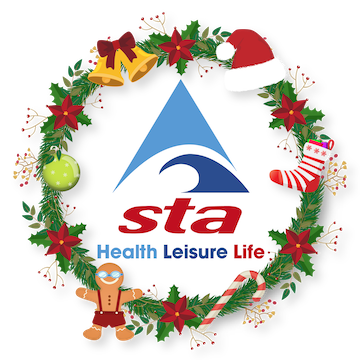Interview with Billy Pye, Paralympic Swimming Coach
Billy Pye, who coached swimmer Ellie Simmonds to Paralympic Games gold in London, recently spoke to Kayle Burgham, STA’s Aquatic Technical Support Officer.
Kayle said he talked passionately about the importance of getting people involved in the sport and confirmed that one of the most vital parts of a swimmer’s development pathway is a good and engaging learn-to-swim programme.
Kayle Burgham: You trained to become a primary school teacher but became a swimming coach. How did that happen?
Billy Pye: It was a blip in my life, really. From school I went to work in the coal pits with my dad for 17 years and when the miners’ strike happened, I realised I couldn’t do this all the time.
I did my A-levels and then a degree at Swansea but only really taught for about 18 months before my love and passion for swimming took over. My profession was coal miner, rather than teacher, but I had always been involved with swimming from a young age, although I did not compete at a national level. I then got into coaching the normal way. Once my daughter started swimming and I was taking her, the coach on the poolside recognised me from my swimming days and asked me to start helping.
KB: How important is initial teaching/coaching at grass roots level when it comes to developing an elite swimmer?
BP: The Olympics and my passion for the sport inspired me at an early age but there is no denying that one of the most vital parts of a swimmer’s development pathway is a good and engaging learn-to-swim programme. This teaches them and develops them, which forms the basis of an elite swimmer.
KB: The Gillette Great Start programme is working with Sports Coach UK to inspire a new generation of coaches and build on the success of the London Olympic games. Why did you choose to be part of the programme?
BP: It’s so important to get volunteers and coaches; they are the ones you can teach and develop from a young age. There is so much talent out there that we do not want to miss. The Gillette Great Start programme is a really good cause.
KB: How important is it for people with disabilities to be trained by someone who is appropriately qualified?
BP: This is something I am really passionate about. As a coach, I coach swimmers. Some of those swimmers have a disability. That is how I look at it: I coach swimmers with a disability, not disability swimmers.
Teachers and coaches do need to be qualified, however it is not the be-all and end-all. Being open-minded, inspirational, and understanding skills is more important. These qualities are what make a coach.
KB: How can we inspire more people to become involved in coaching and developing learners atgrass roots level?
BP: I think more people are inspired from London 2012 and the coverage that the Olympics and Paralympics received has inspired more people to get involved. I think a person like me, saying what my personal experiences are, helps. I have 40-50 coaches and volunteers contacting me each week to find out my experiences and thoughts.
People should not be frightened about coming forward; the first couple of times I stood on poolside coaching I was scared and nervous, but that’s OK. If people are passionate about their sport, enthusiastic and want to get involved, then this is what you pass on to people.
It’s hard graft. For years, I did a full day down the coal pit, and then spend hours coaching on poolside before I got to where I am now. Patience is what makes you successful in sport and business.
Gillette’s Great Start programme celebrates the role of coaching and encourages people to get into coaching by offering grants. To apply for a coaching grant visit www.facebook.com/GilletteUK.
- Categories
- Swimming Teaching

